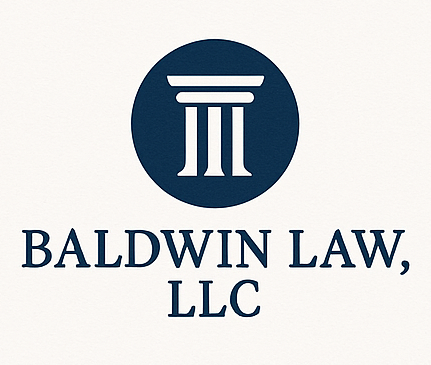Understanding Your Rights Under the Florida Consumer Collection Practices Act
At Baldwin Law, LLC, we're committed to protecting consumers from unfair and abusive debt collection practices. One powerful tool in this fight is the Florida Consumer Collection Practices Act (FCCPA). In this post, we'll explore what the FCCPA is, how it protects you, and what to do if you believe your rights have been violated.
What is the Florida Consumer Collection Practices Act?
The FCCPA is a state law that works alongside the federal Fair Debt Collection Practices Act (FDCPA) to regulate debt collection practices in Florida. While the FDCPA primarily applies to third-party debt collectors, the FCCPA goes further by covering original creditors as well.
Key Protections Under the FCCPA
The FCCPA prohibits a wide range of unfair and deceptive practices, including:
Harassing or abusing debtors
Using or threatening to use force or violence
Using obscene, profane, or abusive language
Publicizing a list of consumers who allegedly refuse to pay debts
Disclosing information about a debt to anyone other than the debtor or their attorney
Communicating with a debtor who is represented by an attorney
Misrepresenting the amount or legal status of a debt
Claiming to be an attorney if they are not
Threatening legal action that is not actually intended
Unique Aspects of the FCCPA
The FCCPA offers some protections that go beyond the federal FDCPA:
It applies to original creditors, not just third-party collectors
It prohibits communication with a debtor's employer before obtaining a final judgment
It requires debt collectors to provide written notification of the right to dispute a debt
Your Rights Under the FCCPA
If a debt collector violates the FCCPA, you have the right to:
Sue for actual damages
Seek statutory damages up to $1,000 per violation
Recover attorney's fees and court costs if you prevail in your lawsuit
Additionally, the FCCPA allows for class action lawsuits, which can be a powerful tool for addressing widespread violations.
What to Do If Your Rights Are Violated
If you believe a debt collector has violated the FCCPA:
Document all interactions with the collector, including dates, times, and content of communications
Keep all written correspondence
If possible, record phone calls (Florida is a two-party consent state, so inform the collector you're recording)
Consult with an experienced consumer protection attorney
At Baldwin Law, LLC, we have extensive experience helping consumers assert their rights under the FCCPA. We can help you understand if a violation has occurred and guide you through the process of seeking justice.
The Importance of Knowing Your Rights
Understanding your rights under the FCCPA is crucial for protecting yourself from unfair debt collection practices. Debt collectors rely on consumers being unaware of their rights, but knowledge is power. By familiarizing yourself with the FCCPA, you can confidently stand up to abusive collection tactics and hold violators accountable.
Remember, you have the right to be treated fairly and respectfully, even if you owe a debt. If you're facing harassment from debt collectors or believe your rights under the FCCPA have been violated, don't hesitate to reach out to our team at Baldwin Law, LLC. We're here to help you navigate these challenging situations and fight for the justice you deserve.
Stay informed, stay empowered, and remember that you have strong legal protections on your side when it comes to debt collection in Florida.
